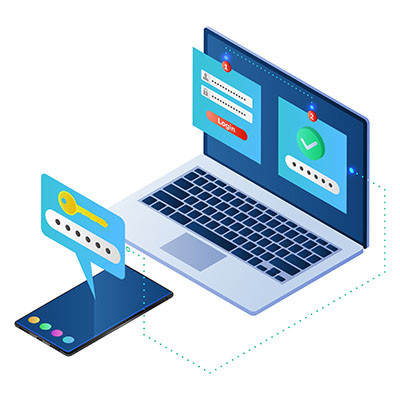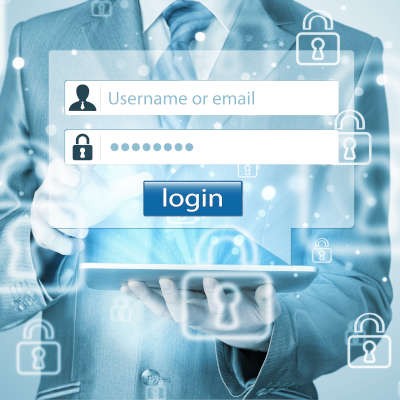When it comes to your business’ cybersecurity, it can be too tempting to operate under the assumption that the few cybersecurity events you hear about on the news are all that happen. Unfortunately, this is far from actual fact. Let’s review some of the statistics that might change your impressions, especially if you hold the aforementioned assumption.
Argentum IT LLC Blog
Whether we like it or not, remote work is not going anywhere, and now that employees have gotten a taste of what it feels like to work remotely, more are eager to do so than ever before. Unfortunately, the reality is that employers are eventually going to want their employees to return to the office in at least some capacity. How can employers do this without upsetting employees too much? The answer lies in a hybrid work environment.
Due to the almost faceless nature of many cybercrime acts, it can be easy to see them as nothing more than the acts themselves, which is of course not true in the slightest. Behind these attacks are people, and where people performing illegal acts are concerned, there will always be concerns about other criminal acts which perpetuate the ones at the surface.
Even if mobile malware doesn’t have nearly as much of a presence in the cyber threat landscape as other major threats like ransomware variants, it is still just as dangerous under the right circumstances. An Android banking malware called Sova, for example, has returned with a vengeance with additional features to make users’ lives miserable.
Look, we get it: remote work has become a bit of a topic of contention lately. While employees have been relishing the benefits that remote work offers them, many employers have been doing everything they can to bring their workforce back into the workplace.
Now, it wouldn’t be unfair for you to assume that we would push remote work as a managed service provider because we just so happen to assist businesses in managing it as a part of our services. This is true enough…but we aren’t the only ones with an opinion on the topic.
User authentication is a critical security feature for a business, specifically because it helps to minimize a significant threat to your business. This is why we’re so adamant that you should require multi-factor authentication wherever it is available… but is a better way to authenticate your users on the horizon?
The past few years have made many people understandably antsy about their health and spending extended amounts of time around other people—which can make coming into the office a very, very stressful experience for some. How can you make your office a healthier place so your team can feel a little more secure as they work?
Many businesses were very suddenly introduced to the capabilities of modern collaboration tools, as… circumstances forced them to either go remote or cease operations for an unknown amount of time. However, while collaboration tools were suddenly a requisite for work, could these tools now be responsible for isolating your team members from one another?
One of the great obstacles many businesses have to remote work is the fact that, well, the team will be remote—not in the office, safely under supervision. This has led many to consider using the webcams installed in their employees’ devices to keep tabs on them. Let’s explore the idea of monitoring your team, and why it probably isn’t a good one.
When we talk about data privacy in a business, the default is to generally think about the data the business has collected and compiled from its clientele. However, that’s just one type of data a business has. There’s also a lot of data that is collected by the business about that business’ employees. So, how well protected is this data?
While remote work has been a relatively new option for many businesses currently using it in their operations, it has already shown considerable benefits. Having said that, it would be incongruous of us if we didn’t also acknowledge one glaring issue that remote work has helped to foster: a sense of disconnect in many of those making use of it.
With so many companies having successfully made use of remote work for so long, there has been some worry that this extended means of operation will have a detrimental impact on company culture. Let’s discuss why this is something to avoid, as well as how to avoid this withering of your team’s collective working relationship.
Workplace stress has increasingly been focused on as a prescient problem for businesses, with an increased focus on identifying the causes and mitigating the impacts. A recently published patent from Microsoft helps to demonstrate how seriously this is now taken… although it also begs the question: do we really need technology’s help to identify when we feel stressed?
Accessibility to the Internet is a hot topic because, at this point, almost everyone should be afforded Internet access. The fact that some people don’t have access to the Internet puts them at a severe disadvantage. One group that has major problems with accessibility are disabled people. Let’s discuss what can be done about that.
With remote work becoming the norm for many businesses in their efforts to maintain operations in recent months, this potentially company-saving adoption has not been without its drawbacks. Most notably, the mental health of many employees has been impacted as teams have been working together while keeping apart, in large part because the quick conversations that happen throughout the workday have largely been eliminated.
What would you consider to be the biggest threat to your business and its continued operations? Cybercrime? A natural disaster? What if I told you that it was the team members that you have employed—whether they meant to be or not? This is the hard truth that you need to prepare your business to resist.
Business relationships, especially between you and a service provider or you and a coworker, are crucial to a business’ success. However, maintaining these relationships can be challenging when there’s a good chance that your actions might create more work for another person. Let’s go over why your relationship with IT may be strained, and offer a few tips to help fix it.
If I were to tell you that one variable was responsible for more than 80 percent of cyberattacks, what would you guess that variable was? If you guessed “stolen access credentials,” you’d be correct. The traditional username/password combination may soon be a thing of the past as more tech companies transition to alternative authentication measures.
Modern society is greatly focused on the virtue of hard work, of productivity. This has led to a kind of unspoken prejudice against breaks in the workplace, that any break that is not earned is the sign of an unproductive employee. As it turns out, the opposite is true. This week, we’re going over how you can turn your breaks into a way to accomplish more in the workplace.




















